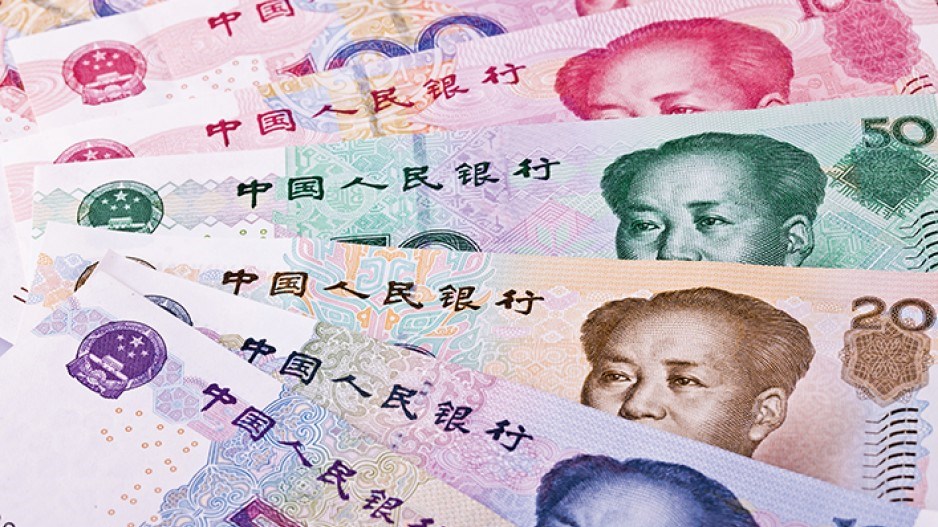Exporters in British Columbia are going to have to get up to speed, quickly, to take advantage of Canada’s new Chinese currency trading hub.
“What Canadian companies are going to start to experience, their Chinese counterparts are going to increasingly start to ask them to do settlement in renminbi (RMB) instead of U.S. dollars,” said Colin Hansen, a former B.C. finance minister and currently president of Advantage BC.
Canada’s renminbi hub was formally launched today (March 23). Backers of the venture say the Chinese currency hub will spur export growth to China for Canadian companies and will open the door to Canadian banks, pension funds and investors to invest in China.
While unofficial yuan trading centres operate all over the world, including in New York, Canada’s RMB hub is the first official hub to operate in North America.
There are currently 10 official RMB hubs throughout the world, the most prominent being Hong Kong, Singapore, London and Frankfurt. The central banks of countries with official hubs have also signed a bilateral swap agreement with the People's Bank of China. It guarantees countries access to a backstop reserve of RMB.
Having an official RMB hub is going to give Canada an advantage in trading with China, said Mike de Jong, B.C.’s finance minister.
“We are very much looking forward to the advantage this will afford Canada generally and British Columbia specifically as our gateway to the Asia Pacific,” de Jong said.
British Columbia currently exports more goods to Asia than any Canadian province, but only 5% of Canadian companies who trade with China do transactions in RMB, compared with the global average of 22%. For some large exporters, exchanging directly from Canadian dollars to yuan could save millions of dollars.
The hub will also draw business from companies in other parts of the Americas who want to use Canada’s hub to exchange currency to RMB in a similar time zone, Hansen said.
The B.C. government has “committed modest support” to get exporters and importers up to speed on how to use the currency hub effectively. A workshop held on February 20 was attended mainly by Canadian banks and exporting companies, Hansen said. He said his organization would be reaching out to importers, who “we have not tapped into enough yet.” The provincial government and AdvantageBC will host a summit on the topic in Vancouver in June.
The renminbi hub agreement between Canada and China also includes the provision of a relatively open environment for Canadians to invest in Chinese companies and bonds, Hansen said.
The growth of official RMB hubs are part of an effort by the Chinese government to internationalize the yuan, although China still strictly controls its currency.
@jenstden




